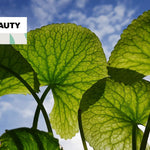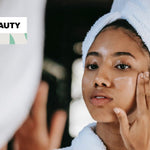Retinol is the only ingredient scientifically proven to stimulate collagen production in the skin, and for that reason, it has been the gold standard in anti-aging products for years. It’s also one of the only products approved by the FDA for the treatment of wrinkles.
And while it looks like Retinol is a one-and-done beauty powerhouse, it’s also one of the most misunderstood beauty products out there. With all the information at our fingertips, the myths that surround Retinol continue to give it a bad rap. Retinol may not be for everyone, but it does have its place in skincare and beauty routines for many. Here’s a closer look at some of the myths about Retinol we should all stop believing.
There’s A Purge Period
While some people may experience peeling, irritation, and breakouts when they first use retinol, it's not a given for everyone. Most people would probably experience some light flaking, dryness, or a mild breakout, but other than that, there are relatively few adverse effects when using retinol. If your skin is prone to irritation or discomfort, you'll likely experience that within the first 2 to 4 weeks after you begin using the product.
To minimize the likelihood of any irritation, be sure to follow the product recommendations and only use a pea-sized amount as indicated on the packing. You can also mix the retinol with a nourishing cream to further minimize any irritation.
It's worth noting that most dermatologists will probably tell you to push through the irritation and get over the hump as the benefits will be so worth it on the other side.
Retinol Exfoliates Your Skin
The dry flaking skin that some people experience often leads them to believe that retinol is an exfoliator— it is not. Retinols work by penetrating deep into the layers of your skin, improving it essentially from the inside out. In contrast, exfoliants work by removing dead skin cells from the surface of the skin.
Again if you find that your skin is flaking excessively or extremely dry when using retinol, try mixing it with a nourishing facial cream to help smooth things over.
Retinol Causes Sun Sensitivity
If you read the package of your retinol prescription, you’ll likely see instructions to use it at night only. No doubt, this has led many people to believe (mistakenly) that retinol will cause sun sensitivity. This, however, is a myth; retinol does not lead to sun sensitivity.
Users are instructed to use the product at night because retinol is essentially deactivated by sunlight. It has nothing to do with sun sensitivity or burns. That said, you should always wear SPF.
Retinol Thins Your Skin
Many people mistakenly believe that retinol thins their skin. This is most likely due to the peeling they experience when they first start using the medication. Consider this another myth busted as retinol does the exact opposite. In fact, retinol typically stimulates collagen production, which helps thicken the skin, not thin it out.
You Can’t Use Retinol Around Your Eyes
The skin around our eyes is the most delicate skin on our face, and from the products we use to the pressure we apply, we’re often cautioned to tread lightly in that area. Undoubtedly, when most people see retinol as this powerful ingredient that leads to irritation, dryness and peeling, it stands to reason that many would think that it’s off-limits to the eye area. But again, that couldn’t be further from the truth.
If you’re experiencing any irritation around the eyes from using retinol, consider mixing it with an eye cream, or dial back your usage to every other night until your skin gets used to it.








